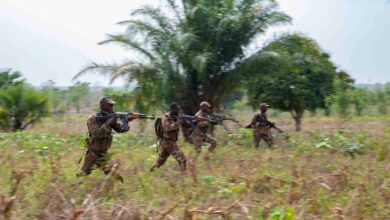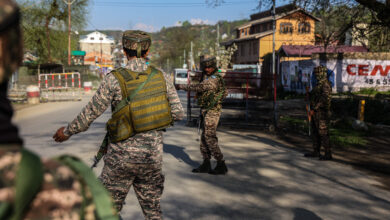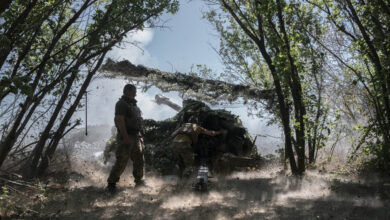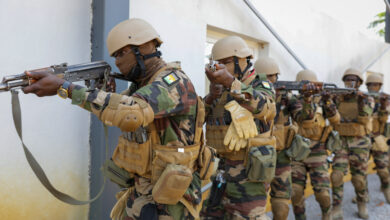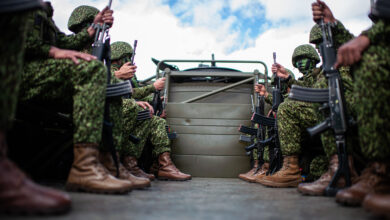At least 20 members of Mali’s security forces were killed on Sunday, January 26 in a major assault against a military camp in near the border with Mauritania later claimed by al-Qaeda-linked JNIM.
The attack which began at around 6 a.m. left “20 dead and five wounded,” the Malian Armed Forces (FAMa) said, adding that 60 personnel survived. There were “four dead on the enemy’s side.”
FAMa personnel took control of the base and swept the area, assisted by a Malian military aircraft.
Government spokesperson Yaya Sangaré said in a statement that there was “significant material damage.”
The victims were buried with military honors at Sokolo, FAMa said.
A local lawmaker said all those killed at Sokolo military camp were gendarmes, or paramilitary police officers.
“The terrorists arrived on motorcycles,” said the official, who asked not to be named for security reasons.
“There were more than 100 attackers,” Sokolo resident Baba Gakou told AFP. “They arrived at five in the morning. They cut off any withdrawal by the gendarmes.”
He added that the assailants left with all the weapons and vehicles at the camp.
“They picked up all their dead. They did not touch anyone in the village,” he told AFP.
A local humanitarian source who managed to enter the camp after the assailants had left described the scene as “complete chaos.”
“It looked like the attackers knew what they were doing,” the source said.
On Monday, JNIM’s Az Zallaqa propaganda outlet said that JNIM members were responsible for the Sokolo attack. It claimed fighters took over the base, killing more than 20 military personnel and capturing two, while the remainder fled. It said nine four-wheel-drive vehicles, weapons and large quantity of ammunition was captured, and acknowledged that three JNIM fighters were killed.
Many armed groups including Islamic State are active in the Sahel region, but the majority of attacks are attributed to JNIM, which formed in March 2017 from a merger of several smaller groups. JNIM’s leadership has pledged allegiance to al-Qaeda leader Ayman al-Zawahiri.
Sokolo in the central Ségou province is around 80 km (50 miles) from the Mauritania border, near a forest considered a base for groups linked to al-Qaeda.
Earlier this month, French forces deployed to Operation Barkhane killed more than 30 “terrorists” in two commando operations in neighboring Mopti province, which the Armed Forces Ministry said was “subject to the predation of the Katiba Macina,” one of JNIM’s constituent groups.
Militant groups in Mali
The complex insurgency in the Sahel began in Mali in 2012, when a Tuareg separatist uprising was exploited by al-Qaeda-linked extremists who took key cities in the desert north. Former colonial power France began its Operation Serval military intervention the following year, driving the jihadists from the towns.
But the militant groups morphed into more nimble formations operating in rural areas, and the insurgency gradually spread to central and southern regions of Mali and across the borders into neighboring Burkina Faso and Niger.
According to the U.N., around 4,000 people were killed in militant attacks in the three countries last year.
Serval evolved in August 2014 into Operation Barkhane, with a mandate for counter-terrorism operations across the Sahel. Roughly 4,500 French troops are deployed, focusing activity in insurgent-hit Mali, Niger and Burkina Faso. Troops deployed to Barkhane work alongside local forces and other international operations in the Sahel, including the G5 Sahel Joint Force (FCG5S), which comprises troops from Burkina Faso, Mali, Niger, Chad and Mauritania, and MINUSMA, the United Nations stabilization mission in Mali.
On January 13, France’s President Emmanuel Macron and the leaders of the G5 Sahel states announced a new Coalition for the Sahel which will see increased coordination between French and local forces focused on the Mali-Burkina Faso-Niger tri-border zone and targeting Islamic State as a priority. The new Sahel Coalition will see Barkhane and the FCG5S forces operating under joint command.
With reporting from AFP



